Last year looked better on the drawing board for these poor sporting superstars.
Last month we presented the trophy winners and heroes ... this month it’s the disasters and zeroes. To these poor folk, 2014 looked far better on the drawing board than how it all played out. Some stuffed it up at the start, some failed at the final hurdle, while for others, the whole damn year was one big nightmare.
Eat that, Luis
Brazil 2014 was controversial superstar Luis Suarez’ big chance to prove, once and for all, that he was the leader and hero the people of Uruguay could rely on to help deliver the South American nation its third World Cup. Sure, he’d admitted to repeatedly diving in the past, had his own Hand of God moment at Germany 2010, and then there were those biting incidents, where he’d taken a chomp out of Chelsea’s Branislav Ivanovic in 2013 and PSV Eindhoven’s Otman Bakkal in 2010. Even if all wasn’t forgiven for his past indiscretions, we still expected to see a more mature, responsible Suarez to take on the world this time around ... Hence the world’s amazement when the now-FC Barcelona charger was caught biting AGAIN. His meal this time? Italian defender Giorgio Chiellini (Luis’ allies suggested Suarez had been biting since he was a child, when kids used to tease him for his “bucked teeth”). The then-Liverpool star, who claimed he was the victim of Italian aggression at Brazil 2014, was outed from the game for four months, with Uruguay team officials’ only defence against his “harsh” suspension being that there was not “enough evidence”. We’re sure even the security cameras at the ground caught a glimpse of that bite ...
Year from hell
If the threat of ASADA coming down hard over the club’s controversial supplements program of 2011 wasn’t enough of a burden for the Cronulla Sharks in 2014, captain Paul Gallen (above, left) missing the first six weeks of ’14 due to a syndesmosis concern on his ankle just seemed unfair. But that was nothin’. Fellow main man Luke Lewis played just eight games thanks to debilitating shoulder and hamstring injuries, while veterans John Morris and Beau Ryan suffered neck injuries, forcing them both into early retirement; because of various ailments, the Sharks used 37 players in 2014. In July, the club announced the resignation of its interim coach Peter Sharp. This happened just a few days after Todd Carney (above, right) appeared in a photo seemingly urinating into his own mouth. The Sharks were kept scoreless in three consecutive games in 2014; the only thing they managed to “win” was the spoon. When that ASADA thunder cloud finally broke, it rained heavily, with ten current players accepting backdated suspensions for unknowingly taking prohibited substances. If all that wasn’t enough, Gallen was fined $50,000 for calling the NRL “c****” via Twitter late in the year. The Sharks just should have stayed in bed in 2014 ...
Blue Wave crashing
As it is for much of the nation, the future of football in Australia is bound up with Asia. And the Western Sydney Wanderers’ victory in the AFC Asian Champions League was one of the great achievements in, and for, Australian sport last year. But we’ll be damned if being a part of this region means having to endure such rough waters. We’re talking here about Al-Hilal, the Saudi super club known as the Blue Wave, and the Wanderers’ opponent in the Champions League final. At risk of making a caricature of the cashed-up, born-to-rule club from Riyadh, Al-Hilal didn’t exactly endear itself to Australian fans, unless you were seeking a villain for a bad 1980s action movie. The club’s rather bold manager, the Romanian Laurentiu Reghecampf, approached the final by talking down his “small” opponents from Western Sydney. Al-Hilal’s fans used laser pointers to try to distract Wanderers players. And for their final grace(less) note, there was Blue Wave star Nassir Al Shamrani head-butting, spitting and inciting a brawl. As a perverse coda to this Asian adventure, Al Shamrani was nominated for the confederation’s player of the year; no Wanderer was nominated.
Running rugby (aground)
The consultants are having a field day with the Australian Rugby Union, which has almost every kind of organisational problem there’s a PowerPoint slide for. The Kurtley Beale-Di Patston texting saga, which at first appeared as an unseemly instance of workplace harassment, was an odd spark – that it led to a full-scale meltdown spoke to what kind of tinder the ARU had become. The fall-out from Beale’s issues made last year’s troubles with immature player behaviour look like small beer. Truly, rugby’s problems were revealed to be much further up the flow chart. Coach Ewen McKenzie chose the exits after little more than a year since coming aboard. Confidence in chief executive Bill Pulver, already grappling with the sport’s parlous finances and the pin-drop-quiet launch of the National Rugby Championship, sunk lower. Then there were the results: another year of Bledisloe Cup drought, a record hammering at the hands of the All Blacks at Eden Park, the first Rugby Championship loss to Argentina. Curiously, there were signs of progress from the Wallabies under McKenzie, which can be viewed as either a good or bad thing. With a World Cup less than a year away, we’ll see if the ARU can become, in the words of those consultants, directionally correct ...
Do or Dubai
Australia’s record playing Test match cricket in Asia we knew was terrible before we even got on the plane to Dubai and Abu Dhabi in October: of 15 Tests played there since 2007, just one win. But the drubbing we got against Pakistan went close to outdoing all prior awfulness. We could say the Pakistanis played superbly. But our guys’ general ineptitude with the bat against steady, intelligent bowling defeats any excuses. Glenn Maxwell’s (pictured above) attempt to reverse-sweep just the ninth ball he faced when he was batting for our lives at first drop in the second Test exemplified our cluelessness. The numbers tell it all: Pakistan’s victory margin of 221 in the first Test was the biggest (in terms of runs) in its history ... that was until they beat us by 356 in the second Test. If our guys needed any ideas on how to bat in those conditions, they had plenty of time to study Younus Khan, as he racked up successive centuries in the first Test, then a double century in the second. If that was too long and involved for them, they could then watch Misbah-ul-Haq score the quickest Test half-century in history, then go on to equal the record for the fastest Test century. Yes, our guys tried. And failed.
Blackest daze
Any review of ASADA’s handling of its “peptide in football” investigations has to raise the question: has there ever been a more flawed, leaky, broken-arsed doping case in history? For sure, Essendon’s treatment of its players as lab rats in 2012 was appalling; the team management stands accused of putting the health of its employees at ridiculous risk with its regime of injections of untested substances. Which is why they got the guernsey on this list last year. But here’s the rub: what they did wasn’t strictly illegal unless the substances injected appear on the banned list, rather than some loony bodybuilding website. As we go to press, ASADA’s case against the Bombers appears circumstantially based on surmise drawn from the testimony of a convicted dope dealer. And that’s about it. Its offer of essentially an off-season ban against the 10 Cronulla Sharks players reeks of a “let’s get out of this mess” solution as much for themselves as the players. But even as this episode rolls into its third year, the question mark appears in neon: after all this time, and all those interviews, is Shane Charter the best witness they’ve got?
Brazilian waxed
It was meant to be their moment – Brazil, the spiritual home of the beautiful game, hosting the 2014 World Cup, favoured once again, poised to claim a landmark sixth victory in the planet’s biggest sporting event. Furthermore, they would exorcise the ghost of 1950, the World Cup final loss at home to Uruguay that forever dented the Brazilian sporting psyche. Instead, the Selecao set a new standard by which other epic thrashings will be measured. The 7-1 loss to Germany seemed scarcely believable as it unfolded, and it unfolded quickly. The Germans had put five on the board with an hour still to go, which gave the match the quality of a drawn-out public execution. With the result known early, the only fascination left was the reaction. On social media, the most apt collective response was gallows humour, best summarised by comedian Russell Brand: “Okay, this is like bullying now.” Chelsea manager Jose Mourinho noted that where he and his peers grew up with 1950, his son’s generation would remember 2014 in the same way. Brazilian great Zico’s indictment was the worst of all – his nation had abandoned its claim to the world’s best football.
Swan song
Three seasons ago, when the Sydney Swans managed a last-gasp, ten-point victory over Hawthorn in the 2012 grand final, the question Swans fans asked themselves was this: how the hell did we win that game? The question they asked themselves this year, after meeting Hawthorn again in the big one? How the hell did we even make the grand final when we’re capable of playing that badly? They were eventually trounced by 63 points, but it may as well have been 160. After going into the game as favourites, the Swans were never in it from the opening bounce. Coach John Longmire put it best: “We didn’t apply the sort of pressure that we hoped to apply early. We didn’t play the sort of football we wanted to. We didn’t pressure the opposition when they had the ball. We couldn’t get our hands on it. When we got our hands on it, we coughed it up and the opposition got it. We missed tackles and we were on the back foot from the first bounce. We weren’t able to wrest the momentum back at any stage.”
FOE
Even by FIFA’s own sorry standards, its investigation into itself over the corruption allegations surrounding the 2018 and 2022 World Cup bids looks like the worst attempted whitewash in its history. First, FIFA president Sepp Blatter appoints US attorney Michael Garcia to look into allegations of bribery surrounding the bids. This is his first mistake: Garcia is a high-powered prosecutor who takes his job seriously. He takes thousands of pages of evidence, including that of highly placed whistleblowers within the bid committees, then hands it to Blatter. Blatter hands the evidence to judge Hans-Joachim Eckert to prepare a summary report. This report comes to all of 43 pages. This judge finds that there is, indeed, “improper conduct”. But not enough to “compromise the integrity of the bidding process as a whole”. And that’s supposed to be that. And while he’s at it, he breaches the promises of confidentiality to the whisteblowers and singles them out as unreliable. Bedlam reigns. Garcia disowns the judge’s report. The whistleblowers lodge complaints. The entire United European Football Association (UEFA) threatens to leave FIFA. Is this the tipping point for an IOC-like renovation of FIFA?
Coaching PR 101
When Athletics Australia head coach Eric Hollingsworth needed to make peace with our star Sally Pearson during the Commonwealth Games, what did he do? A cup of tea together and a quiet word, perhaps? Nup. Not his style. They hadn’t spoken for six months anyway, ever since he tore into her for only coming second at the World Indoor Championships in Poland in March. No, he issued a press release. On the eve of her most important event of the year. Entitled “Athletics Boss Answers His Critics”. He decided to let the world know the facts of the matter, you see. A public defence. He wanted to correct “a negative and incorrect picture of the events leading up to the Commonwealth Games”. OMG, Sally hadn’t turned up on time to a team camp! As team captain: “Her no-show sets a bad example to the entire national team.” And did his public spray fix the situation? Well ... yes. Hollingsworth was put on the next plane home. And later sacked from his position. Sally defended her hurdles title. And Australia’s track and field team heaved a collective sigh of relief.
Related Articles
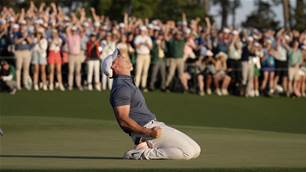
Feature Story: Moving the Needle
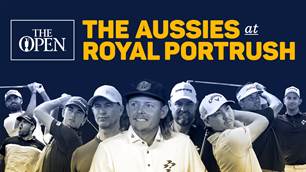
The Aussies at The Open
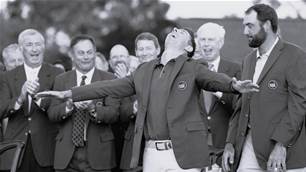
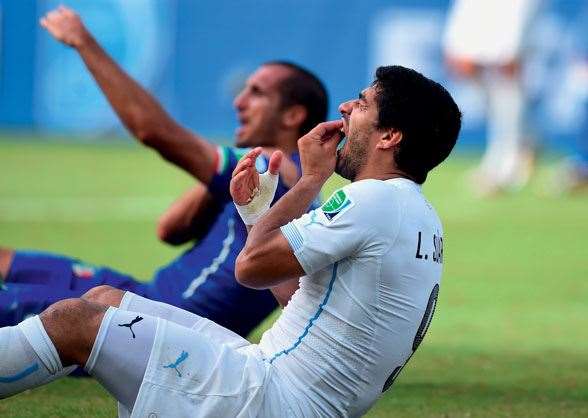
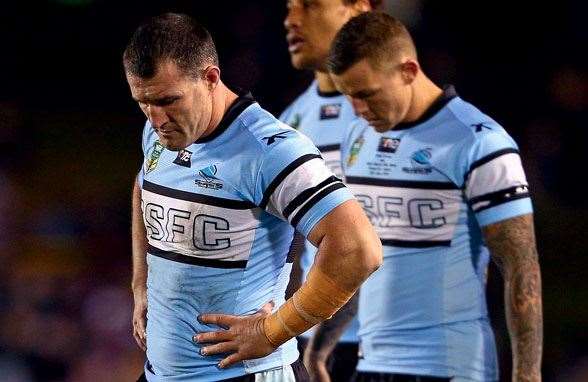
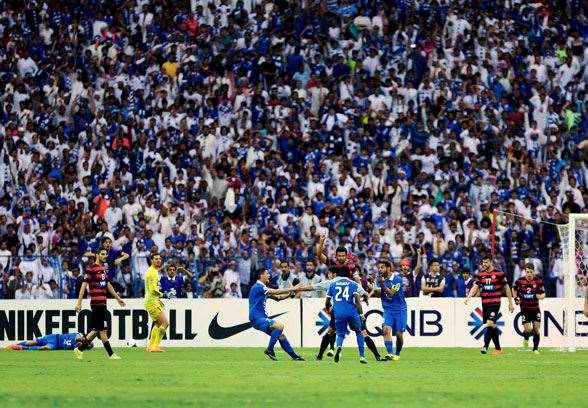
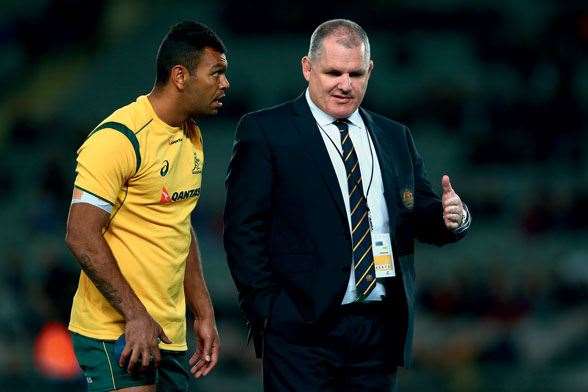
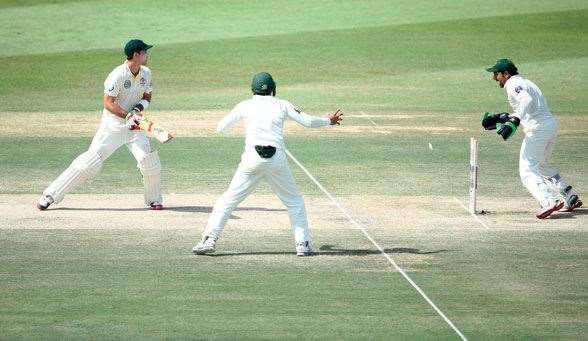
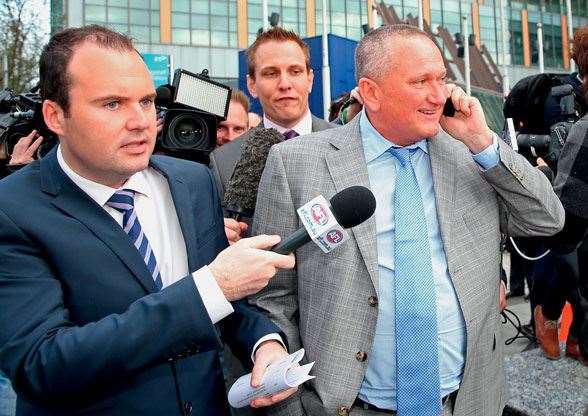
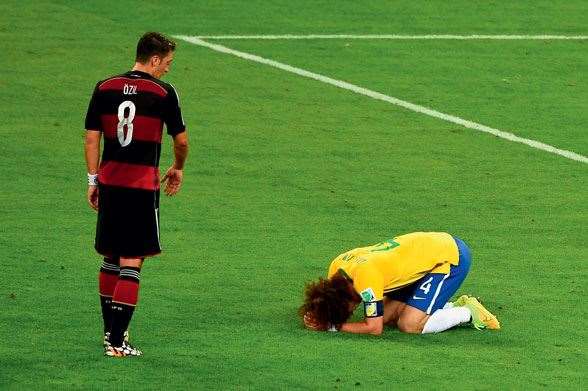
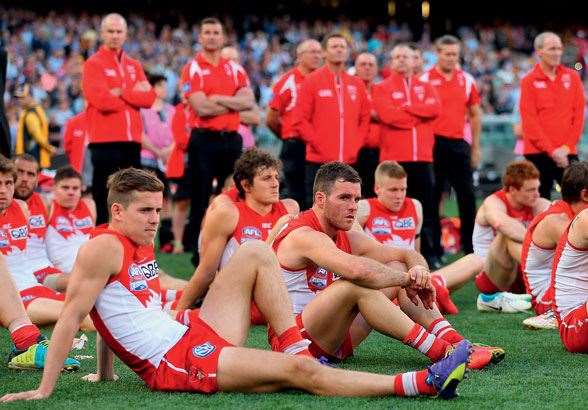
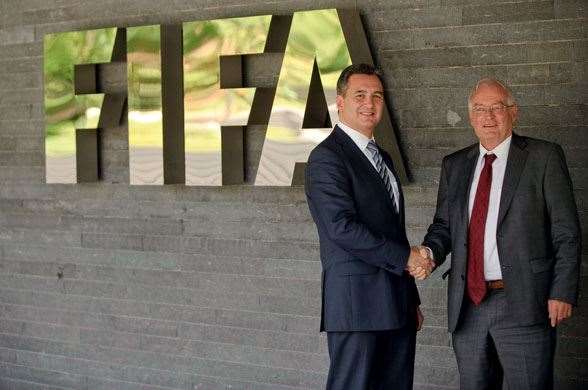
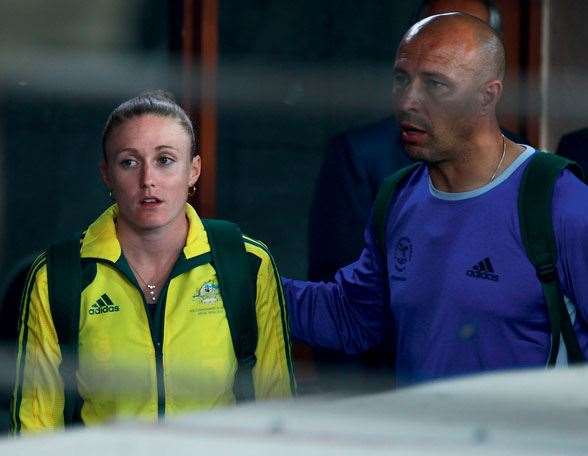


.png&h=115&w=225&c=1&s=1)









